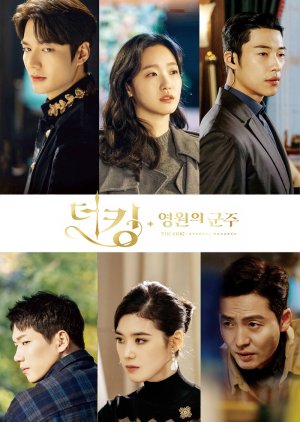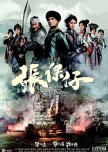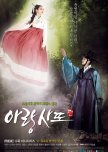
Lee Gon is the third Korean emperor of his generation. His citizens regard him as the perfect leader. But behind this flawless appearance, hides a deep wound. When he was eight years old, his father was murdered before his eyes following a coup. Today, instead of respecting his filial duty, he prefers to escape the palace to attend university conferences. During one of his escapades, he sees himself propelled into a parallel world where he meets Jeong Tae Eul, an inspector with whom he teams up with to defeat the criminals but also close the door between their two worlds

Vanishing Time: A Boy Who Returned, has similar aspects to The King: Eternal Monarch, these aspects are:
-At a certain point the ML is stuck inside a world where time is frozen, and in both stories the MLs are the only ones who still go through time.
-in both stories, the ML is going through this time, in hopes of seeing the FL again.
-At a certain point the ML is stuck inside a world where time is frozen, and in both stories the MLs are the only ones who still go through time.
-in both stories, the ML is going through this time, in hopes of seeing the FL again.

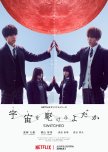
A popular teenager inexplicably finds herself in the body of an unpopular classmate - and her body's new owner has no intention of switching back. The series centers on Ayumi Kohinata, a first-year high school student who has a cute and shy personality. She's excited that she just started dating her first boyfriend, but on the day of their first date, she gets a mysterious call from her classmate Zenko Umine. Zenko says she's going to die, and Ayumi witnesses Zenko jumping from a building. The next thing she knows, Ayumi wakes up in a hospital, but in Zenko's body.
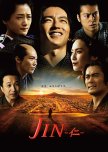



Jung Yeol and Na Ra fell in love with each other and got married. During their marriage, they have grown to hate each other due to their personality differences. They decide to get a divorce. A month later, their divorce will be finalized. But, on the day that they applied for a divorce, they get into a car accident. When they wake up at the hospital, they have both lost their memories and do not remember each other.
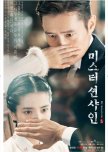
They're completely different plots, but I immediately got similar vibes from the first episode of The King. The aesthetics in both are very similar and give the same kinda feel. I've only seen the first episode of The King, but so far, both male leads have been hurt and wronged in their childhood as well as both of their parents were killed. The female leads also have similar strong personalities and aren't afraid to get hurt. They're also both good shows and are on Netflix ;)

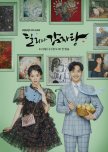
Though the genres are not the same, there are some similarities:
- both male leads initially come off as ridiculously cocky (one is a king who's handsome and he knows it, while the other is an uncultured nouveau riche) but they are very smart when things get serious and very professional when it comes to work.
- both female leads are strong and independent from start to finish in their own ways: in TKEM, she's a tough fighter (literary) while Dali is elegant and classy.
- both couples have amazing chemistry and a nice supportive relationship. They each accepted their partners as they are despite their polar-opposite personalities.
All-around, Dali is a better written story because it has less plotholes and product placement, and is more grounded in reality. However, TKEM has way better production and cinematography and much bigger stakes making everything feel epic.
I highly recommend both.
- both male leads initially come off as ridiculously cocky (one is a king who's handsome and he knows it, while the other is an uncultured nouveau riche) but they are very smart when things get serious and very professional when it comes to work.
- both female leads are strong and independent from start to finish in their own ways: in TKEM, she's a tough fighter (literary) while Dali is elegant and classy.
- both couples have amazing chemistry and a nice supportive relationship. They each accepted their partners as they are despite their polar-opposite personalities.
All-around, Dali is a better written story because it has less plotholes and product placement, and is more grounded in reality. However, TKEM has way better production and cinematography and much bigger stakes making everything feel epic.
I highly recommend both.

The King and CLOY are similar in sense that they are 2 completely different worlds, but still similar...I am redundant, I know.
In The King, there are 2 parallel worlds or universes...and the "King" himself is a king in his world, while on the other world, he is just as ordinary as you can get, not special at all.
This reminds me of the situation in CLOY where Seri is a very rich and respected woman in her "world" aka SoKor, while in NoKor, she is just a nobody and just plain lost, like the "king" felt in The King, Eternal Monarch.
In The King, there are 2 parallel worlds or universes...and the "King" himself is a king in his world, while on the other world, he is just as ordinary as you can get, not special at all.
This reminds me of the situation in CLOY where Seri is a very rich and respected woman in her "world" aka SoKor, while in NoKor, she is just a nobody and just plain lost, like the "king" felt in The King, Eternal Monarch.


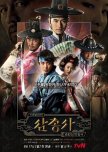
not so similar but both have interesting touch to Crown Prince Sohyeon (who was ahead of his time, wanted to bring modern things in Korea).
While he is ML in 3 Musketeers, In The King: Eternal Monarch. Crown Prince Sohyeon, in a parallel universe, lived on to become king. His reign would cause a chain reaction that culminated in a modern constitutional monarchy.
both drama ask question, what would be if Prince Sohyeon became King as he should be.
While he is ML in 3 Musketeers, In The King: Eternal Monarch. Crown Prince Sohyeon, in a parallel universe, lived on to become king. His reign would cause a chain reaction that culminated in a modern constitutional monarchy.
both drama ask question, what would be if Prince Sohyeon became King as he should be.

